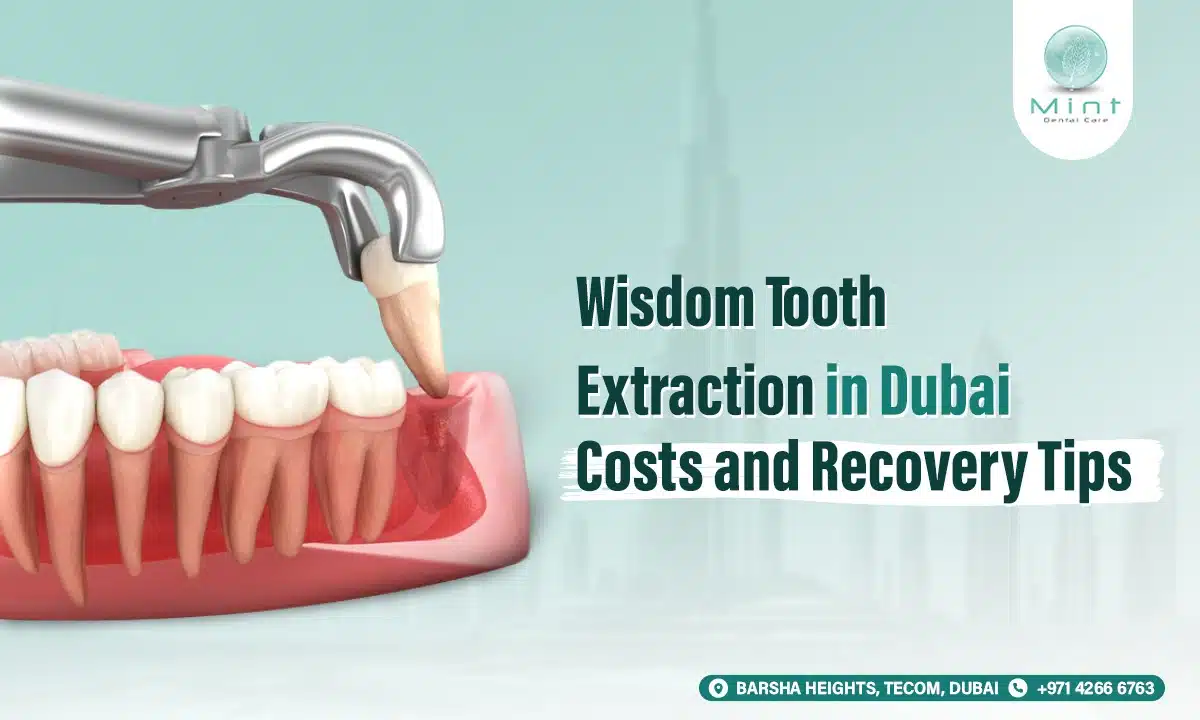Wisdom tooth extraction is a common dental procedure needed when these teeth become impacted, causing pain or other oral health issues. In Dubai, this procedure is widely available across various dental clinics, with prices and recovery guidelines varying based on several factors.
This article will provide a comprehensive guide on wisdom tooth extraction in Dubai, including the costs, procedures, and tips for a smooth recovery.
What Are Wisdom Teeth and Why Do They Need to Be Removed?
Wisdom teeth, also known as third molars, are the last set of teeth at the back of the mouth. These teeth typically emerge during late adolescence or early adulthood, usually between the ages of 17 and 25. However, not everyone experiences issues with their wisdom teeth. In some cases, they can become impacted, causing pain, infections, or alignment problems with other teeth.
When wisdom teeth don’t have enough space to emerge properly, they can push against adjacent teeth, leading to discomfort and other complications. The removal of wisdom teeth becomes necessary to avoid these problems and to maintain oral health.
What Happens If Wisdom Teeth Are Not Removed?
If impacted wisdom teeth are left untreated, they can cause a range of dental problems. These may include:
- Pain: Impacted wisdom teeth often cause significant discomfort, particularly when they are pressing against other teeth or bone.
- Infection: Partially erupted wisdom teeth can trap food and bacteria, leading to infection and swelling.
- Decay: Due to their location, wisdom teeth are difficult to clean, making them prone to cavities and gum disease.
- Damage to Adjacent Teeth: Impacted wisdom teeth can damage the teeth next to them, causing crowding or misalignment.
- Cysts and Tumors: In severe cases, untreated impacted wisdom teeth can lead to cysts or other growths around the affected tooth.Removing wisdom teeth can prevent these complications and protect your overall oral health.
What Are the Costs of Wisdom Tooth Extraction in Dubai?
The cost of wisdom tooth extraction in Dubai varies significantly based on several factors, such as the complexity of the procedure, the clinic’s location, the dentist’s experience, and the type of anesthesia used.
What Does the Wisdom Tooth Extraction Process Involve?
The process of wisdom tooth extraction generally involves the following steps:
1. Initial Consultation
During your first visit, the dentist will evaluate your dental health and take an X-ray to determine the position of your wisdom teeth. This will help the dentist decide whether removal is necessary and what type of extraction will be required.
2. Anesthesia Administration
Before the extraction begins, the dentist will administer anesthesia to ensure you are comfortable throughout the procedure. Most wisdom tooth extractions are performed under local anesthesia, which numbs the area around the tooth. However, sedation options, including nitrous oxide or IV sedation, may also be offered, especially if you feel anxious about the procedure.
3. The Extraction Procedure
Depending on the complexity, the extraction may be straightforward or involve surgical techniques. For simple extractions, the dentist will loosen the tooth using dental instruments and remove it with forceps. If the tooth is impacted, the dentist may need to make an incision in the gum, remove bone or section the tooth, and then extract the pieces.
4. Post-Extraction Care
After the tooth is removed, the dentist will clean the extraction site, place stitches if necessary, and apply gauze to control any bleeding. You will be given specific post-operative instructions to ensure a smooth recovery.
What Are the Recovery Tips After Wisdom Tooth Removal?
The recovery process after wisdom tooth extraction is generally quick for most people, though it can take a few days to fully heal. Here are some important recovery tips to follow:
How Can You Manage Pain After Extraction?
Pain is a common side effect after wisdom tooth extraction, but it can be managed effectively with the help of prescribed pain medications. Over-the-counter painkillers like ibuprofen or acetaminophen can also help alleviate mild discomfort. Applying an ice pack to the affected area can reduce swelling and ease pain during the first 24 hours.
What Are the Post-Operative Care Guidelines?
- Avoid Smoking and Drinking Through a Straw: Smoking can delay the healing process and increase the risk of developing a dry socket, while drinking through a straw can cause the blood clot at the extraction site to dislodge.
- Rest and Take It Easy: Resting for the first few days after the extraction is essential to promote healing. Avoid strenuous physical activity during this time.
- Dietary Restrictions: Stick to a soft food diet for the first few days to avoid irritating the extraction site. Avoid hot, spicy, or hard foods that could aggravate the area.
- Oral Hygiene: Gently rinse your mouth with warm saline water after 24 hours to keep the site clean. Avoid brushing directly on the extraction site for the first few days.
How Long Does It Take to Recover?
For most people, recovery from wisdom tooth removal takes about 3 to 4 days for uncomplicated cases. Swelling and discomfort should subside within this time frame. However, for more complex extractions, full recovery may take up to a week or longer. It is crucial to attend a follow-up appointment with your dentist to ensure proper healing and have any stitches removed if necessary.
What Are the Potential Complications of Wisdom Tooth Extraction?
While wisdom tooth extraction is generally safe, there are some potential complications that may arise, including:
- Infection: Although rare, an infection can occur at the extraction site, leading to pain, swelling, or fever.
- Dry Socket: This occurs when the blood clot at the extraction site is dislodged or dissolves prematurely, exposing the bone and nerves. It can cause intense pain and delay the healing process.
- Nerve Damage: In rare cases, the extraction process can damage nearby nerves, leading to temporary or permanent numbness in the lower lip, chin, or tongue.
- Excessive Bleeding: Some bleeding is normal after extraction, but excessive bleeding may indicate a problem. If bleeding persists, contact your dentist immediately.
Conclusion
Wisdom tooth extraction in Dubai is a common procedure that is usually performed to prevent pain and complications associated with impacted or problematic teeth. The cost of the procedure can vary depending on factors such as the clinic’s location, the complexity of the extraction, and the dentist’s expertise. Recovery typically takes a few days, but following post-operative care instructions is crucial for a smooth healing process. If you are considering wisdom tooth removal, consulting with an experienced dentist will help you understand the best approach for your situation.















